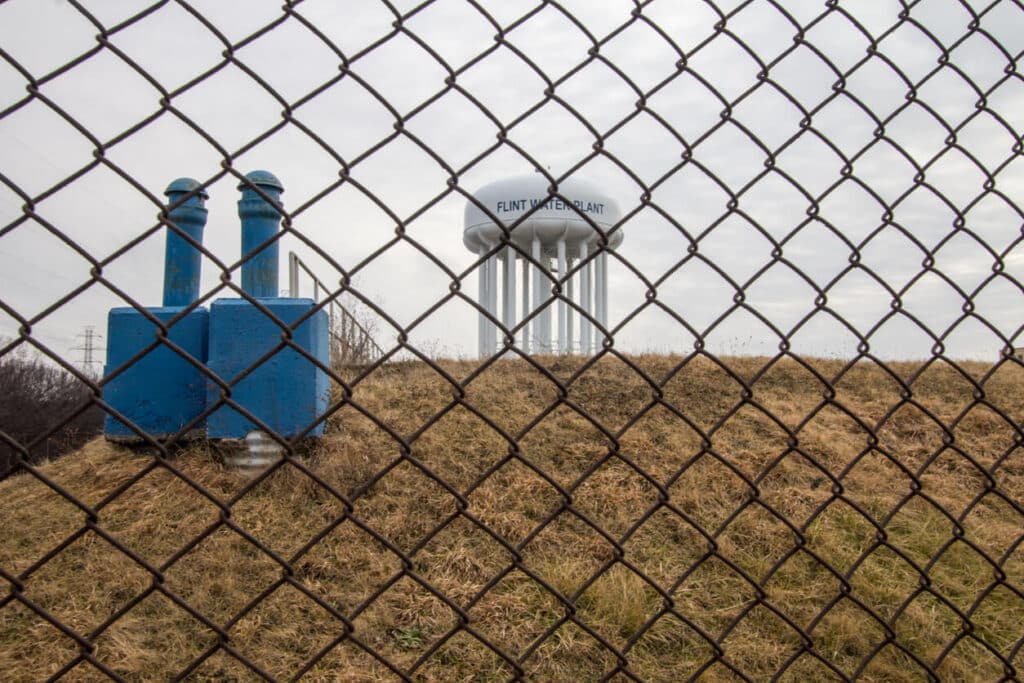The Flint Water Crisis began in April 2014, when the City of Flint’s drinking water was changed from Lake Huron-sourced water to water sourced from the Flint River, purportedly to save money. Within weeks residents began to complain about the smell and color of the water. By October of 2014, General Motors switched off of the Flint River water because it was so corrosive that GM’s manufacturing processes were impacted.
By early 2015, the City of Flint’s Emergency Manager evaluated whether to switch off of the Flint River water as well, and retained environmental engineers at a company named Veolia to provide assistance. Regrettably, Veolia assured residents and community leaders that the water met all EPA safety standards. As a result, Flint citizens continued to drink corrosive water that was contaminated with elevated levels of lead.
Throughout this period, those drinking and bathing in the water — particularly children and vulnerable adults — began to suffer the effects of lead poisoning.
“It is well known that elevated levels of lead cause adverse health effects, especially for vulnerable adult populations and kids,” says Paul Novak, a Flint native, and head of Weitz & Luxenberg’s Flint water litigation team. “Michiganders who lived with that water will never be the same, and the integrity of the plumbing in their homes has been compromised.”
Nearly nine years later, those who suffered the effects will begin to see justice.
In March 2023, days after the U.S. 6th Circuit Court of Appeals affirmed the settlement over objections, Genesee County Judge David Newblatt similarly approved the record-breaking settlement between the people of Flint and the State of Michigan, City of Flint, and others. The $626 million resolution represents the largest civil settlement in Michigan history.
The settlement fund includes $600 million from the State of Michigan and $20 million from the city of Flint’s insurance companies.
“While this historical resolution provides some relief to people of Flint, the money will never make up for the damage that has been done,” says Mr. Novak.
“These decisions effectively resolve our fight against the State of Michigan and City of Flint, but we continue our efforts to hold accountable the engineering firms who we believe contributed to this catastrophe,” Mr. Novak adds.
Mr. Novak, along with Gregory Stamatopolous, Paulina Kennedy, and other attorneys in Weitz & Luxenberg’s Detroit office, were instrumental in achieving this result, along with colleagues in Michigan and beyond. Weitz & Luxenberg works with co-lead class counsel at the Cohen Milstein and Pitt McGehee Palmer Bonanni & Rivers law firms, as well as with the Susman Godfrey, Goodman Hurwitz & James, Motley Rice, Teresa Bingman, Deborah LaBelle, Cynthia Lindsey, and Bronstein, Gewirtz & Grossman law firms.
“It has been a serious team effort to obtain this result and we have been privileged to work with such a talented group of lawyers,” Mr. Novak adds.
Now that the settlement has been approved, a claims administrator will continue the process of managing the claims and determining levels of recovery for individual claimants. Those who believed themselves injured had to submit paperwork by June of 2022.
The 6th Circuit’s opinion rejecting objections to the settlement and attorney fee orders was issued on March 17, 2023. And on March 20, 2023, Judge Newblatt in Genesee County Circuit Court issued a Final Judgment and Order of Dismissal With Prejudice Implementing Partial Settlement. These decisions pave the way for implementation of the settlement and payment to claimants.


